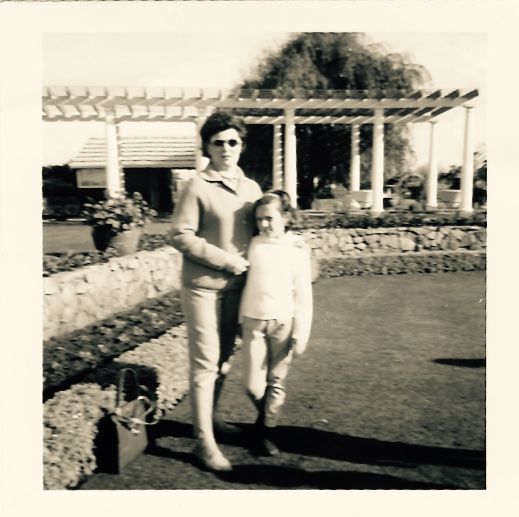The gardener walked up to the bench where my mother, grandmother and brother were sitting, enjoying the peace and beauty of the Fletcher Jones Gardens. He carried a bucket containing a pathetic looking, wilted, single petunia, which lay at the bottom.
“Did your child do this?” asked the livid gardener, who seemed older to me than anyone I had previously come across. I’ve never been a good liar and certainly not as a small child of perhaps six or seven. It’s always been easier to tell the truth – the guilt of a lie has always overwhelmed me and not been worth the predictable self-torment that would accompany it. “Don’t ever come back here again!” he warned as he asked us to leave. And I took him seriously. For many years afterwards I was terrified to return, refusing to go; sure that the gardener would still be there and even more certain that he would never forget the face of a criminal. My mother would tell me not to be silly, that of course we could return. But I was frightened. A little girl playing make-believe at the entrance to the gardens, pretending to own a flower shop, and in order to make it more life-like, picking a petunia to sell to my imaginary customer. A crime worthy of banishment!
Our regular family trips to Warrnambool would always include a compulsory visit to the FJ Gardens. Imagine a factory that didn’t look anything like the pokey Brunswick factories with their rickety wooden stairs that I would visit with my dad when he was buying stock for his Warrnambool drapery store – BPF[1] Stores. Imagine what to me seemed such a grand, wide, beautiful building with the most incredible gardens surrounding it. Walking around them was a delight for a child – the sea of colours, variety of flowers, and one would discover something exciting and different in every corner and at every turn– even a wishing well with real coins in it that I loved to toss a coin into and wish – for God knows what. An enormous painted cement basket with an array of colours and flowers in it. A rose garden that was laid out in perfect symmetry. Everywhere the most beautiful flowers growing and lovingly tended. And looming high above it all – the Fletcher Jones giant silver ball that could be seen above all else when you turned the bend in the highway entering Warrnambool. These gardens and this factory were Warrnambool’s pride.
Two years ago, in early 2014 I returned to Warrnambool after a long hiatus. I visited the gardens, only to be met by enormous “FOR SALE” signs around the property. The once beautifully kept building was the work place for so many and had stood so proudly as an example of what decent workplace relations could look like under its “Fletcher Jones and Staff” sign that reminded everyone of the importance of their workers. What was left was a desolate shell. Empty, devoid of life. The once beautiful gardens neglected and sad, overgrown with weeds. I learnt a long time ago that all things - good and bad, come to an end. Nevertheless, sad it was.
A few weeks ago, I went back again. Something has changed. The benches dotting the gardens have been re-painted in their bold colours; sections of the garden have been lovingly cleaned up by a group of volunteers. I saw a family arriving for a picnic. Life is beginning to return to Fletcher Jones gardens. I took a photo where 2 flower boxes still stood and I recalled a little girl of 6 or 7 immersed in a world of her own playing flower shop and offering her customer a single petunia.
I bought a wisp of a rose bush that came from the gardens at the rather haggard looking ‘pop-up’ nursery raising money for the gardens. A piece of Fletcher Jones. A little bit of Warrnambool. A small bush of memories growing in my garden back home. I hope it flourishes.
Julia Blum
[1] BPF was Blum (my dad) who ran the Warrnambool shop, Pakin (in Camperdown) and Frydenberg (in Colac)

